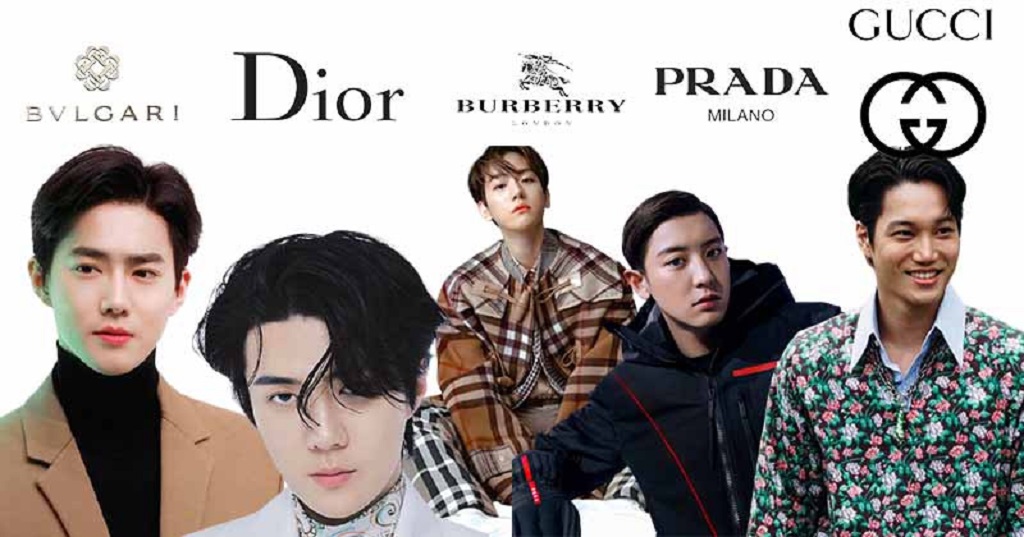
Celebrity Endorsements of luxury fashion is not a new peculiarity as it has been around for quite some time. Charles Worth, who developed Haute Couture in Paris in the nineteenth century, understood the significance of connecting celebs to brands, even before this was perceived as an essential advertising communications tool. However, a report from Spotted notes that luxury brands on average forge weaker associations with characters than mass names, and some perfect quality names interface themselves with risky delegates. When making what can be multi-million-dollar marketing investments, luxury brands counsel data to sort out which celebrity Considerations will resonate with their audience rather than making a match dependent on instinct.
Celebrity Choices
Of all the brands considered by Spotted, Versace’s celebrity strategy was found to be the weakest. The label’s work with Christy Turlington Burns doesn’t align firmly with its audience, making it be the twelfth most fragile organization this year.
Nordstrom, Mikimoto, Fendi, and Tiffany and Co. were among the ten brands with the weakest celebrity alignments.
Tiffany’s decisions of Lady Gaga and ASAP Ferg reverberate more with an audience that is undeniably less well-to-do than the diamond setter’s regular client.
In the interim, Burberry’s arrangement with Iris Law is the second most vulnerable association that Spotted studied.
One of the essential traps that luxury brands fall into is picking an excessively universal face, as this prevalence can weaken all their associations. For example, model Kaia Gerber’s coordinated efforts with brands including Saint Laurent, Marc Jacobs, Versace, and Chanel were the 50 least successful.
Additionally, Kendall Jenner is one of the celebrities that can adversely affect a campaign, partly due to her great endorsement deals with names like Longchamp, Missoni, and Fendi. She additionally has a low purchaser endorsement rating, driving down the advantage of her partnership.
“The issue that emerges when a celebrity has such countless supports bargains in the market simultaneously is that that deals wind up dilutive affecting any of those brands,” Ms. Comenos said. “If you’ve seen Kendall in 22 unique missions over the previous month, you’re not going to have the option to monitor which brands she supports.

What Are the Selection Criteria?
Celebrity endorsement moves the character and status of the celebrity as compelling, rich, and distinctive directly to the brand. Another character ascribes that the star might have, for example, fabulousness, magnificence, ability, and style, will likewise be ultimately connected with the brand. This brings up the question of the Selection Criteria of a celebrity for a brand. How might the right star be coordinated with the right brand to maximize impact and results? The accompanying five rules of celebrity endorsement for luxury brands indicate this.
Rule One: Credibility
The celebrity should be credible. This implies that he/she should have an undeniable degree of ability and talent in their field. Actors Tom Cruise and George Clooney have star power due to their ability.
Rule Two: Global Appeal
The celebrity should have worldwide appeal. This implies that the superstar should not exclusively be known worldwide however should likewise be valued and popular with the more significant part of people in the fashion and consumer society. Charlize Theron and Halle Berry are two entertainers that fulfill this model quickly.
Rule Three: Personality
The celebrity’s character should match the brand’s personality. Luxury brands often tragically pick a superstar to support their brands, dependent on their appeal and popularity. Although these qualities are significant, it is fundamental to comprehend the critical role that a celebrity’s personality brings to the brand. A luxury brand, such as Hermès, may use a celebrity to convey a clear and unmistakable brand message, and describe the trademark through its characteristics and personality, rather than a celebrity that exhibits non-traditionalism.
Rule Four: Uniform Power
The celebrity should not eclipse the brand. This is especially significant for new and best-in-class luxury brands. A few established luxury brands already have strong brand characters, so it’s difficult for famous people to surpass the brand.
Rule Five: Constancy
The celebrity should have constancy and lasting appeal. This implies that the star should have maintainability and the skill to keep up with their picture and profession in like manner. This is frequently founded on how predictably successful a celebrity’s career and job as a star are projected. It is very like the business conjecture projection that organizations make utilizing past and current incomes.
Endorsements of luxury fashion brands by celebrities are a strategy that undoubtedly has incredible significance in the luxury products area. Albeit the momentary outcomes are hard to quantify if managed viably precisely, this strategy regularly yields long-term advantages. For example, expand brand faithfulness and brand value, which ultimately translates to higher sales turnover and brand value.
